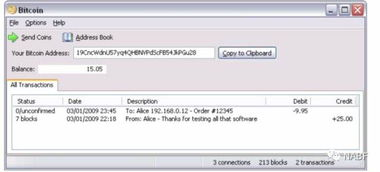Bitcoin Security Breaches, Understanding Risks and Protecting Your Assets
The rise of Bitcoin has undoubtedly revolutionized the financial landscape, but with great opportunity comes significant risk. In this article, we will explore the various security breaches associated with Bitcoin and discuss effective strategies to protect your digital assets.
The rise of Bitcoin has undoubtedly revolutionized the financial landscape, but with great opportunity comes significant risk. In this article, we will explore the various security breaches associated with Bitcoin and discuss effective strategies to protect your digital assets.


Understanding Bitcoin Hacking
Bitcoin hacking refers to unauthorized attempts to access or steal Bitcoin from wallets or exchanges. These security breaches can occur through various methods, including phishing scams, malware, and exploiting vulnerabilities in the software. It is crucial for investors and users to remain aware of these threats in order to safeguard their investments.
One common method used by hackers is phishing, where they send fraudulent communications that appear to come from reputable sources. Victims may be tricked into revealing their private keys or login credentials, leading to the loss of their Bitcoin. Additionally, malware can be installed on devices to steal sensitive information without the user’s knowledge.
Another serious risk stems from exchanges, which are online platforms allowing users to buy, sell, and trade Bitcoin. Many high-profile exchanges have been hacked, resulting in significant financial losses for investors. These incidents highlight the importance of choosing exchanges that prioritize security and utilize strong protective measures.

Preventing Bitcoin Hacking
To help mitigate the risks of Bitcoin hacking, users can adopt several proactive security measures. First and foremost, enabling two-factor authentication (2FA) on wallets and accounts adds an additional layer of protection. This requires users to provide not just a password but also a second piece of information, usually sent to their mobile device, to access their accounts.
Another essential practice is to store Bitcoin in hardware wallets rather than keeping them on exchanges. Hardware wallets, which are physical devices that securely store your private keys offline, greatly reduce the risk of hacking. Even if a hacker were to compromise the exchange, they would still not have access to the assets stored in a hardware wallet.
Additionally, users must stay informed about the latest security practices and remain vigilant regarding suspicious communications. Regularly updating software and applying security patches is also crucial in protecting against potential vulnerabilities.
In summary, while Bitcoin offers exciting opportunities for investment, it also comes with inherent risks of hacking. By understanding the methods hackers use and implementing strong security measures, investors can significantly reduce their chances of falling victim to these breaches. Taking steps to secure digital assets is vital in preserving the integrity and value of investments in the evolving landscape of cryptocurrency.





